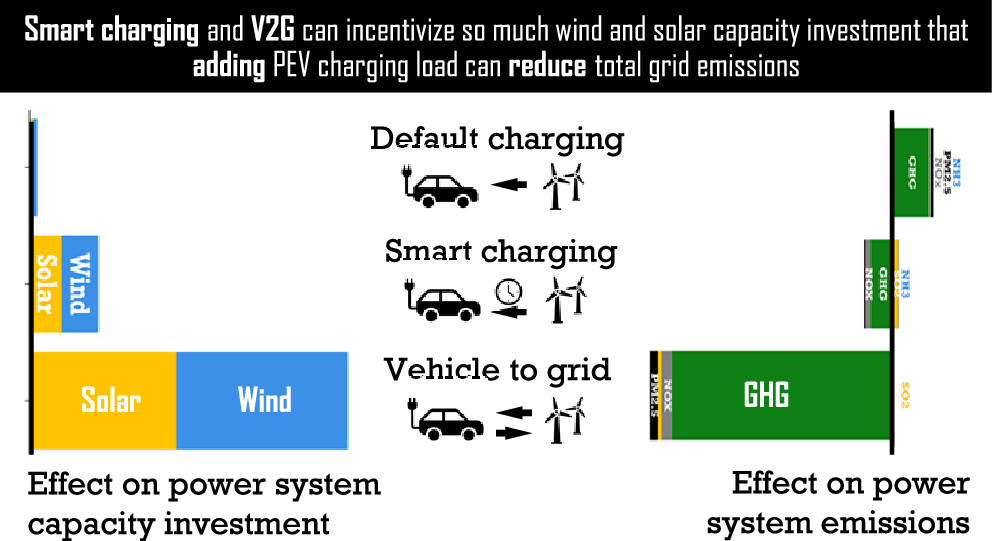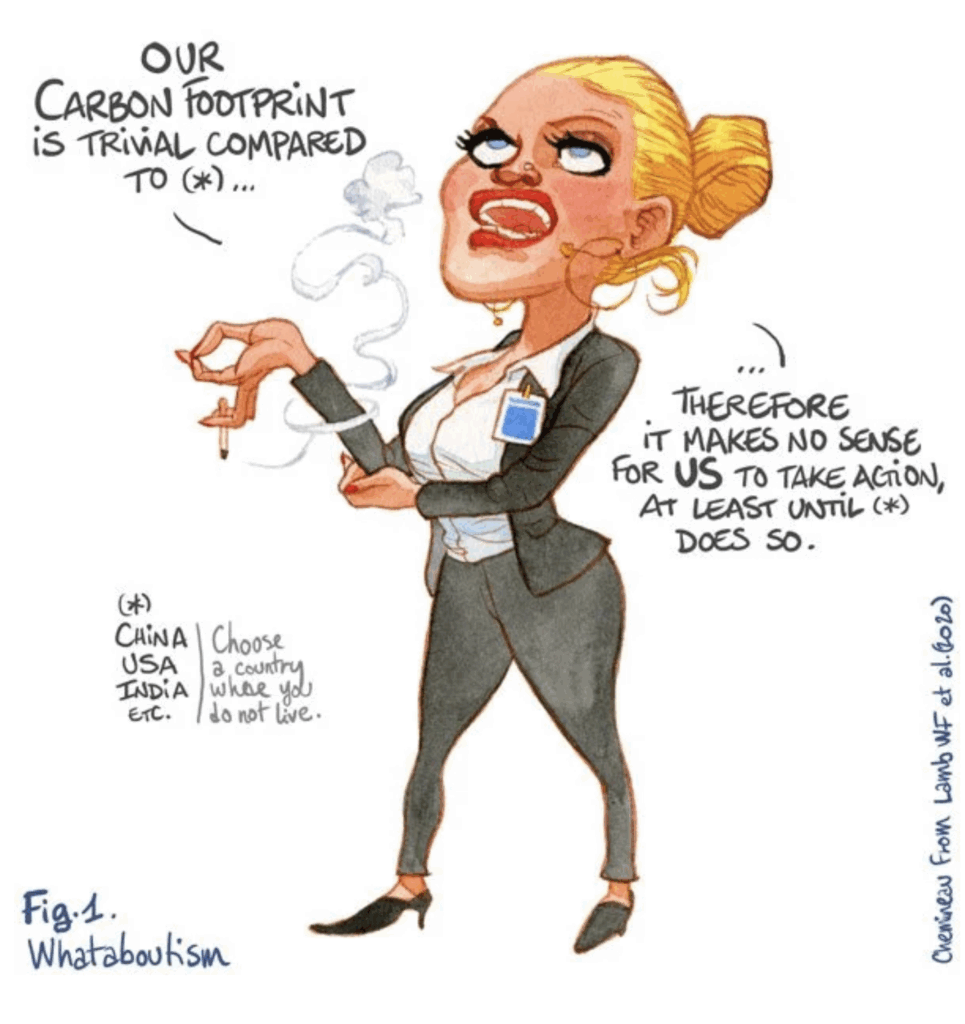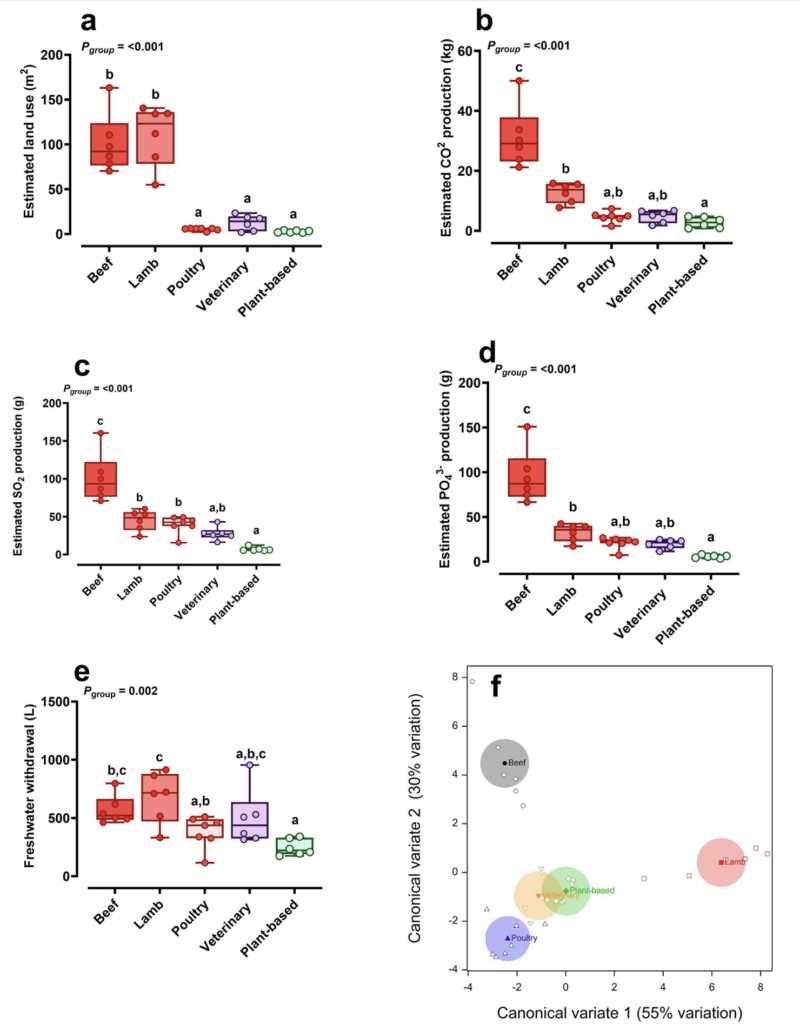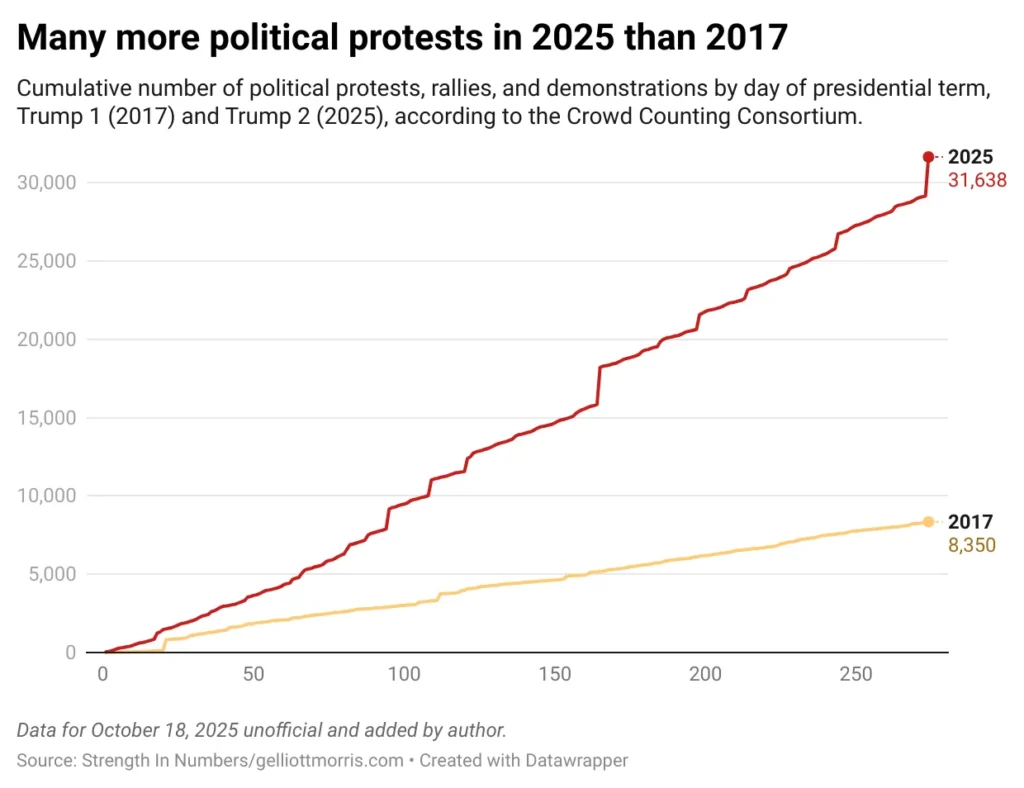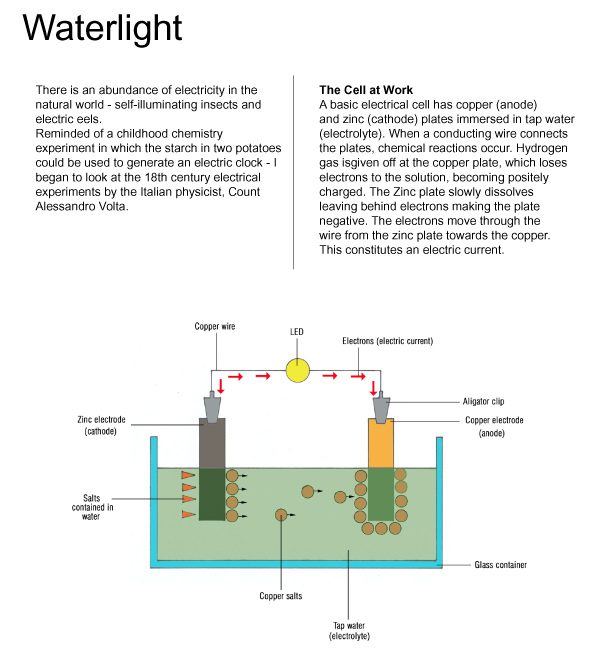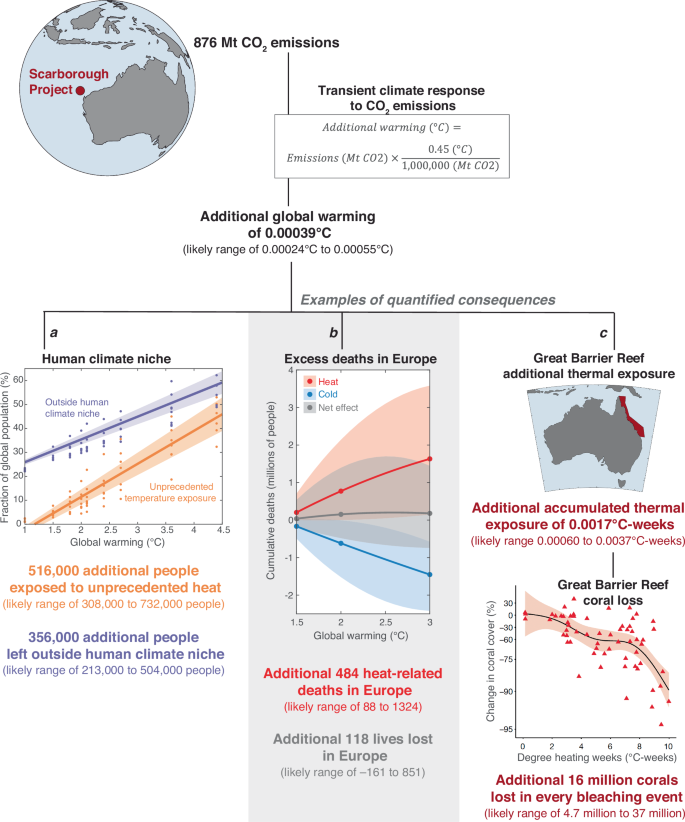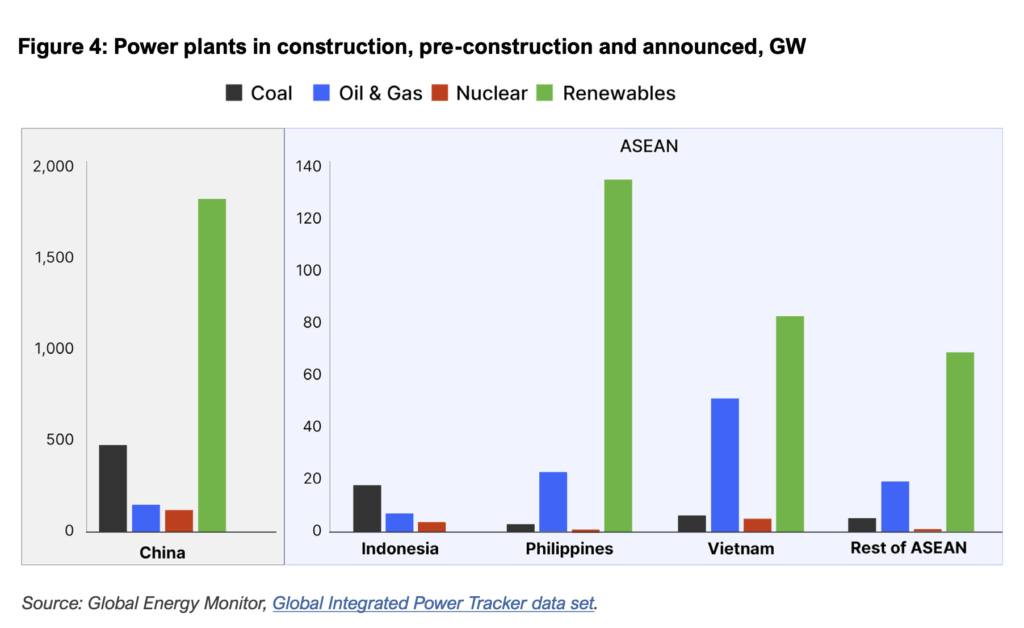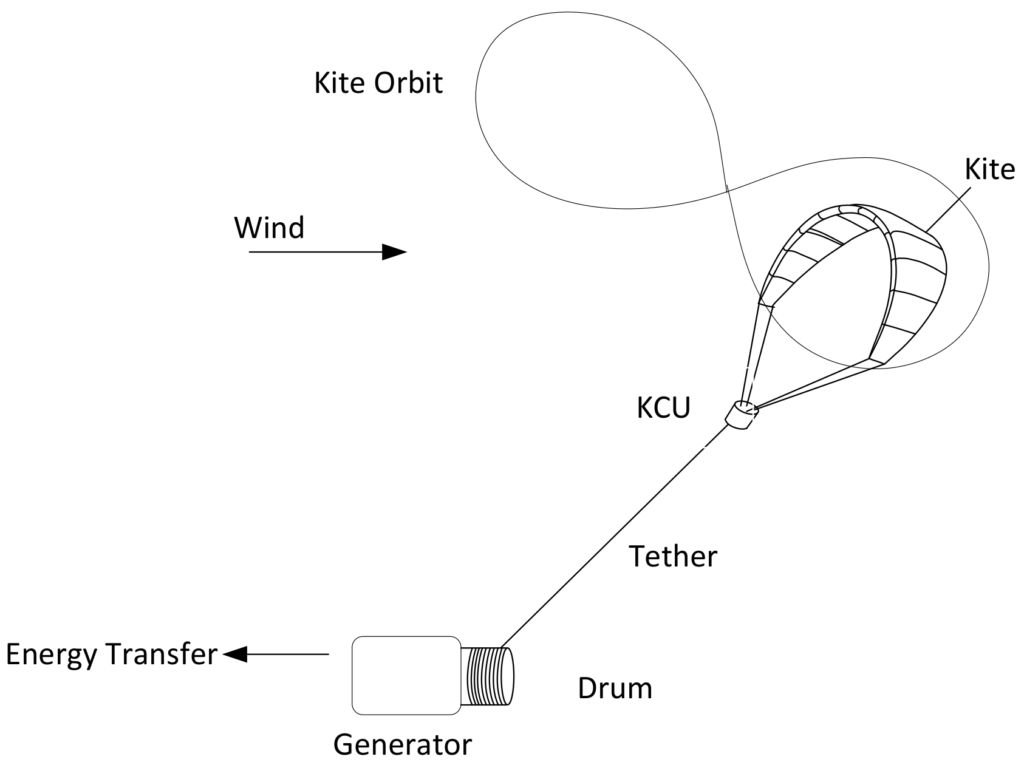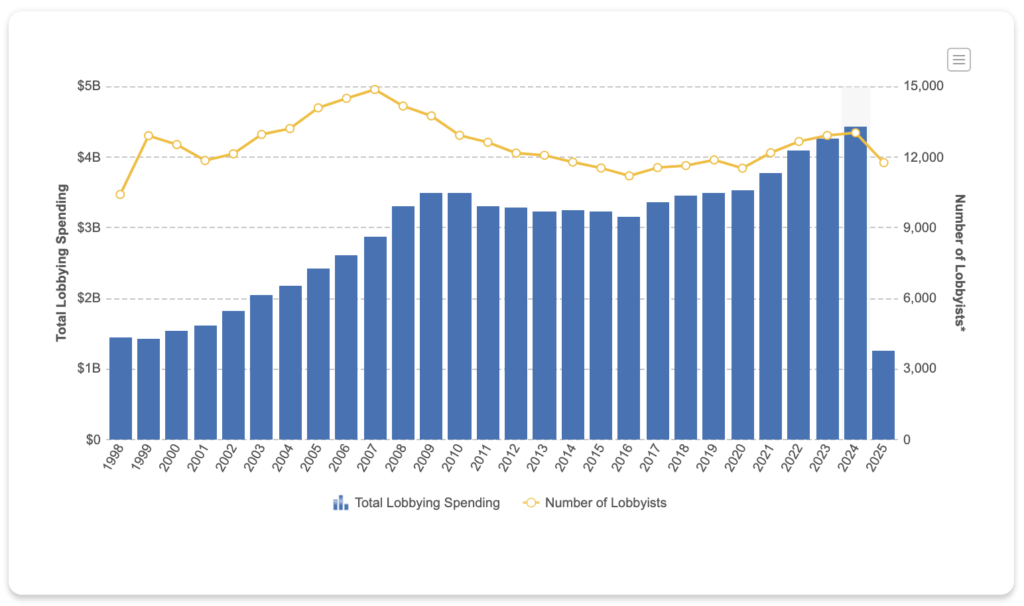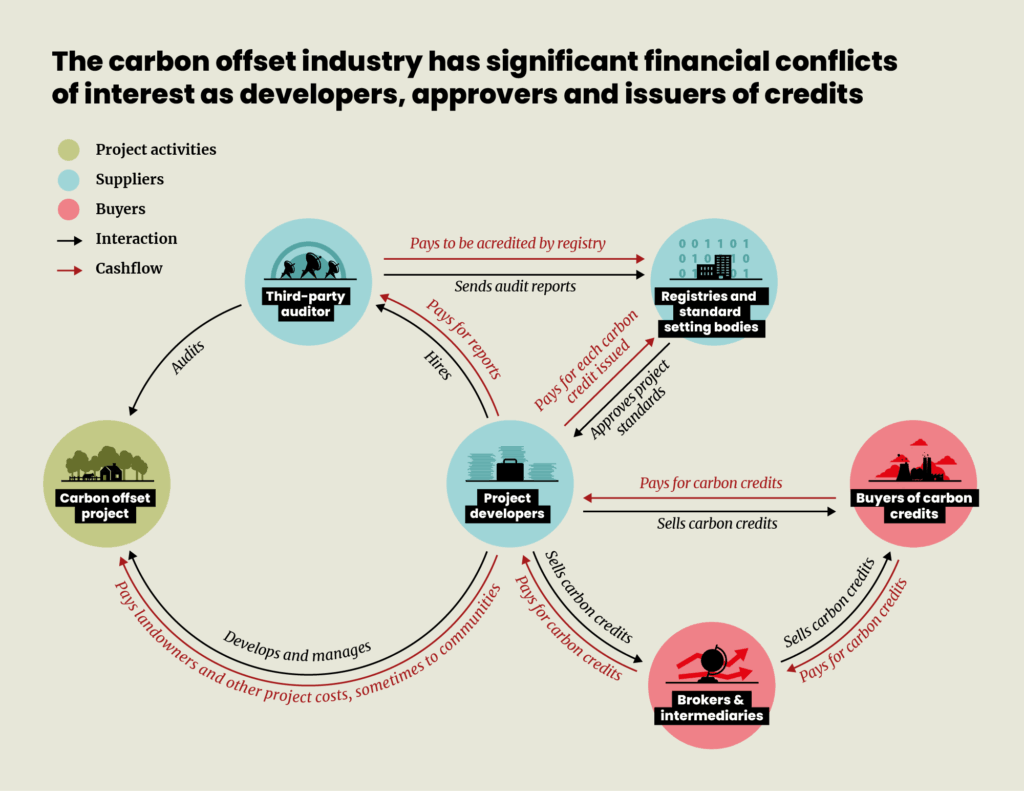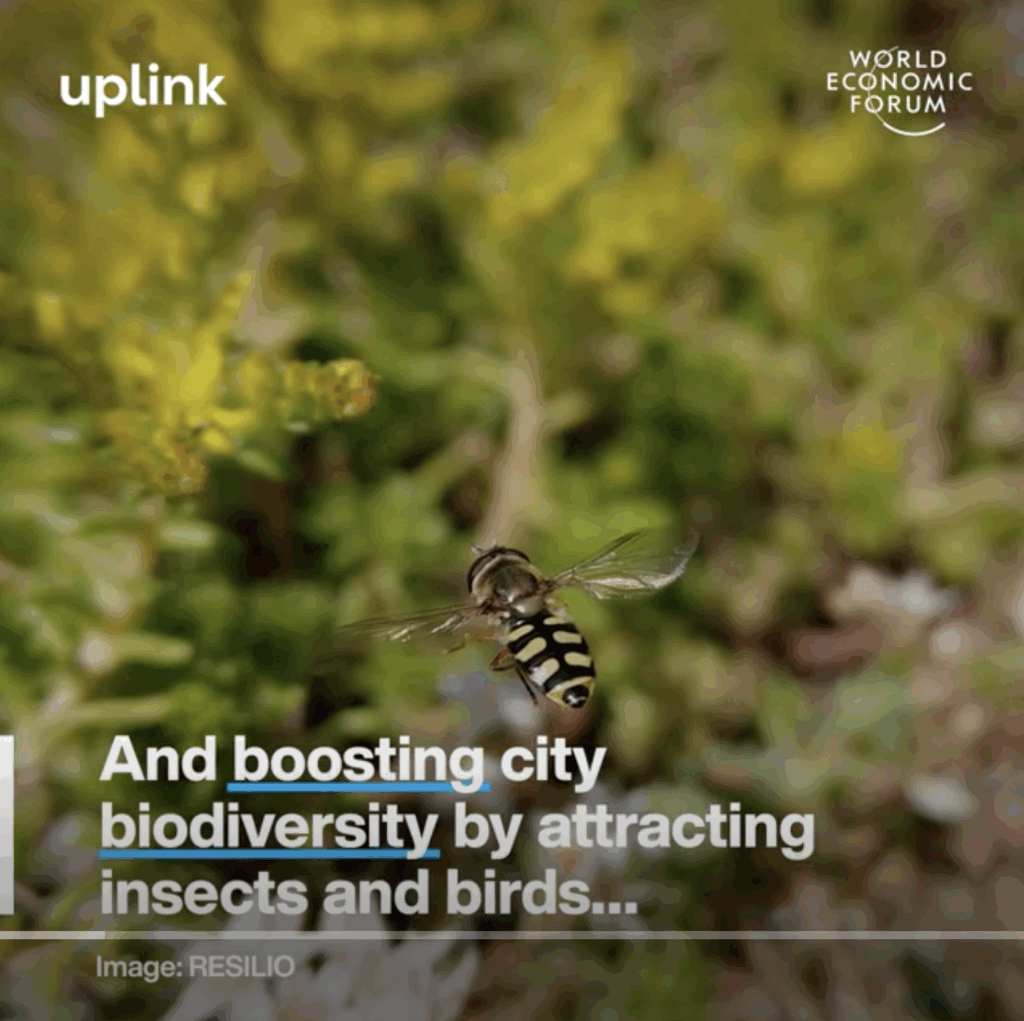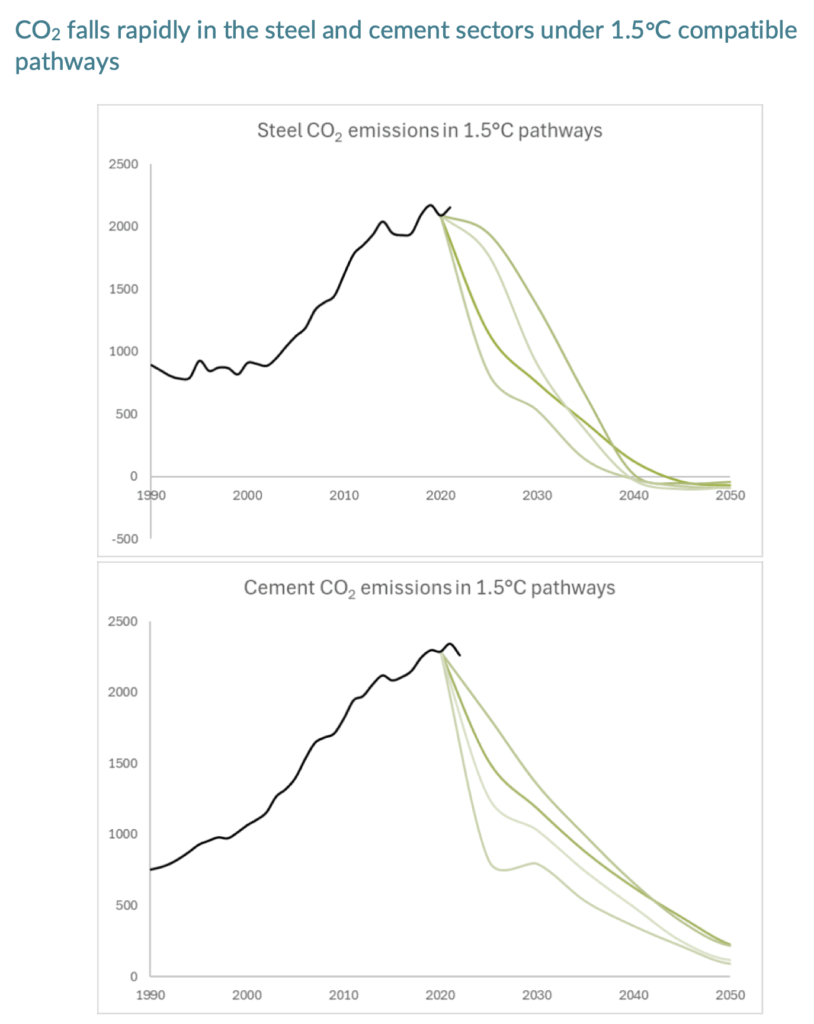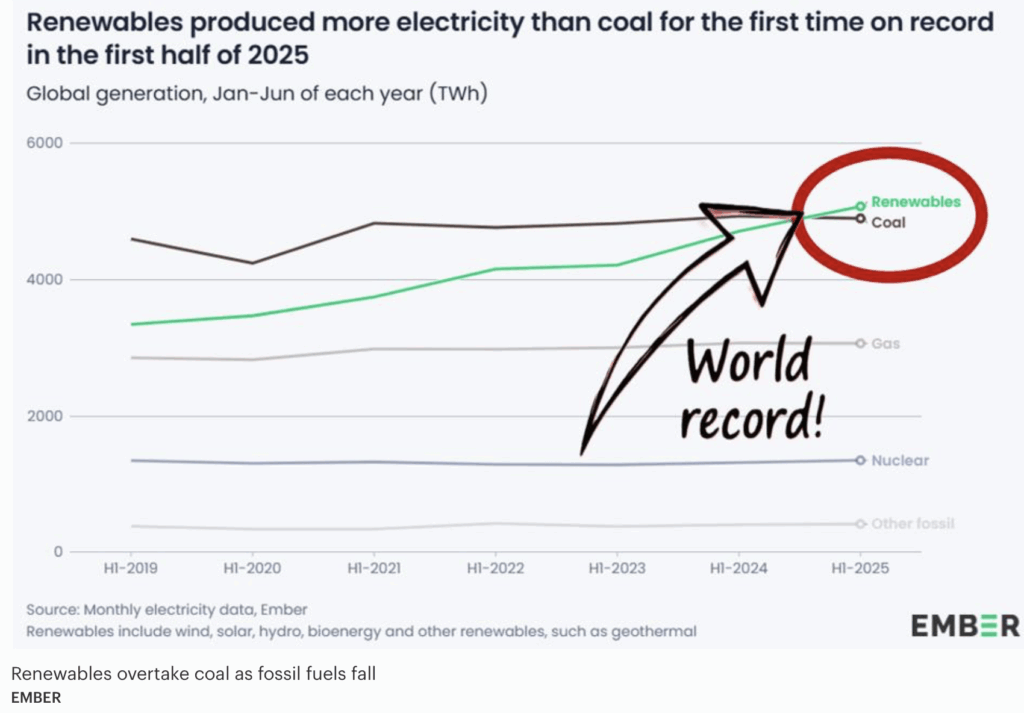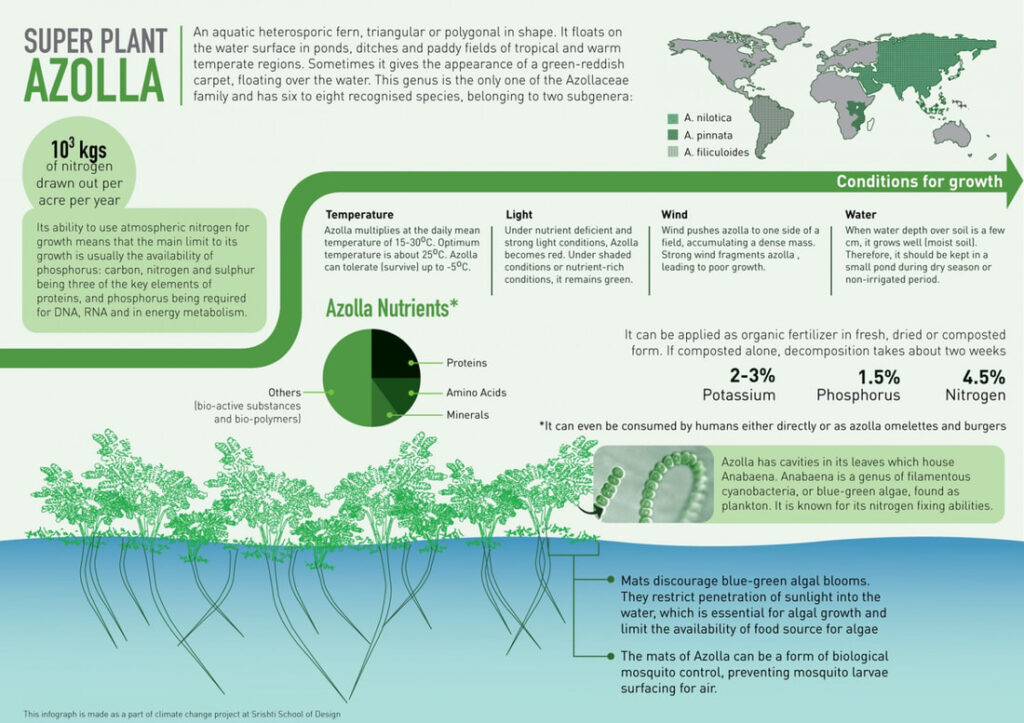VEN – Good News on Climate Action – Blog
Researchers discover a way to generate negative emissions from charging electric cars
The answer lies in strategic charging to encourage solar and wind power development By Sarah DeWeerd October 21, 2025 Anthropocene Charging electric vehicles (EVs) when renewable energy is abundant—and supplying power back to the grid when demand peaks—could significantly cut greenhouse gas emissions from the power system, according to a new study. The analysis finds that…
Read MoreDiscourses of Climate Delay cartoon
by Léonard Chemineau Discourses Of Climate Delay Blog Contact Where is your favorite politician on the scope ? Where is your old uncle ? Where is your neighbour ? And where are YOU ? *** Please feel free to share / print / download those images as much as you want ***
Read MoreTime for plant based diets to reduce the pet food sector’s paw-print!
Researchers compare the footprint of meat vs. plant-based dog foods. The differences were staggering. Global pet food emissions rival those of a small country. A new UK study reveals that switching dogs to plant-based foods could slash emissions tenfold—without sacrificing nutrition. By Emma Bryce October 3, 2025 in Anthropocene Researchers have identified a novel way to…
Read MoreIncreasing protests for democracy in USA
G Elliott Morris, writing at Strength in Numbers, has partnered with the the Xylom to produce crowdsourced estimates of participant numbers at the No Kings protests. According to their estimates, the No Kings protests are likely to be the largest single-day political protest ever, with a median estimate of 5 million people taking part. Elliott has also charted the…
Read More24/7 energy from 500 ml of saltwater
\Yoann Berno Investing in climate breakthrough technologies to solve climate change 💥 | Founder of Climate Insiders View my newsletter LinkedIn Sounds impossible. But it’s real. 24/7 energy from 500 ml of saltwater. 🌊💡 Meet E-Dina WaterLight, a Colombian renewable-energy startup turning seawater into power. The science is simple: saltwater + magnesium = a chemical…
Read MoreThe climate litigation straw that could now break the director’s back.
Tanya Fiedler Climate accounting and accountability LinkedIn The climate litigation straw that could now break the director’s back.Climate attribution science has been advancing, but this is the moment it connects directly to corporate accountability.For the first time, this amazing group of researchers have quantified how a single fossil fuel project can be linked to hundreds…
Read MoreRussia and the US are both struggling to revive their declining coal mining sectors … and Australian coal producers are losing their markets
Bob Burton in Coalwire: Russia and the US are both struggling to revive their declining coal mining sectors. In Russia, the international response to the invasion of Ukraine deprived exporters of access to traditional markets in Europe, with alternative Asian importers only buying shipments at heavily discounted rates. Accessing Asian markets to the east came at…
Read MoreWhich direction should we be looking for the next source of low-carbon energy?… and Kites!
It depends. Which story would you like? By James Gaines September 2, 2025 in Anthropocene There’s no telling how low or how high humanity will go in its quest for more energy. The deepest oil well to date, the Z-44 well in Sakhalin Island, Russia (just north of Japan), for example, reaches an astounding depth, drilling through…
Read MoreCorporate climate ambitions continue to rise despite ‘greenhushing’: less talk, more action!
Original title: Is greenhushing the new greenwashing? Or something else entirely Companies used to be accused of faking sustainability via greenwashing. Now some are hiding actual climate progress. By James Gaines October 19, 2025 in Anthropocene Many companies seem to be walking back climate pledges. The sad fate of the Net Zero Banking Alliance is a case in point.…
Read MorePrivate funding steps up climate finance.
Original title: Who could replace US climate financing? Decarbonization is a long game with a shifting line-up of players—and funds By Mark Harris April 17, 2025 in Anthropocene Lawsuits and political pressure may save a few projects here and there but the future of climate financing under the current US administration seems clear—there isn’t one. From a…
Read MoreIs there a climate generation gap?
The age groups are aligned in mission, but not necessarily in tactics By James Gaines September 22, 2025 in Anthropocene In 2019, singer Billie Eilish (then 19), captured the building frustration of many young people when she said, “Hopefully the adults and the old people start listening to us so that we don’t all die. Old people…
Read MoreCivil campaign helps court save Lamu from power project
The long campaign by Kenyan civil society groups against the country’s first proposed Lamu power project has finally come to an end after a court upheld a lower court decision overturning the environmental permit for the project. Kenyan groups celebrate court ruling against coal plant The chairperson of the Save Lamu campaign, Somo M. Somo, welcomed the…
Read MoreSenator Pocock ban for raising concerns about lobbyists brings attention to level of ‘state capture’.
PM criticises Pocock’s ban from parliamentary sports club but dismisses concerns about betting lobby Exclusive: Senator accused of bringing social club into disrepute after raising concerns about its association with betting lobby Henry Belot Fri 10 Oct 2025 Anthony Albanese says independent senator David Pocock should not be kicked out of parliament’s social sports club despite the prime…
Read MoreAustralian firefighters: Renewables and fire risk – what are the facts?
Posted byCam Walker September 30, 2025Posted in Australian FirefightersTags:climate change, fire, renewable energy Why renewables? Australia and other high-emission nations must take drastic action to stop climate change impacts becoming irreversible. As was noted recently by Professor Mark Howden, Director of the ANU Institute for Climate, Energy and Disaster Solutions (ICEDS) and Vice-Chair of the UN Intergovernmental…
Read More‘The Idea of Australia’. Why adopting a ‘she’ll be right’ attitude to Australian politics may be seductive, but it certainly isn’t guaranteed
Julianne Schultz in The Guardian Sun 12 Oct 2025 Australians are rightfully proud of their robust election process, yet surveys suggest very few fully understand it. Beware of political leaders encouraging apathy, patting your hand and assuring you that the status quo is all hunky dory, encouraging a very Australian “she’ll be right” attitude, there’s…
Read MoreCollapse of the carbon offset lie: largest ever study proves carbon offsets don’t cut emissions.
link to SOMO Article summary below: Romm, Joseph & Lezak, Stephen & Alshamsi, Amna. (2025). Are Carbon Offsets Fixable?. Annual Review of Environment and Resources. 50. 649-680. 10.1146/annurev-environ-112823-064813. The Australia Institute edited offsets report 2023 below (under article) Commentary: Kasper Benjamin Reimer Bjørkskov on LinkedIn EXCLUSIVE — The verdict is in. The most comprehensive review…
Read MoreSmart roofs that help catch and reuse rainwater, boost city biodiversity AND reduce urban heating
Amsterdam is repurposing 10.000m2 of rooftops with smart roofs that help catch and reuse rainwater, boost city biodiversity AND reduce urban heating! 🌱 🐝 The project aims at demonstrating and scientifically validating function and value of the combination of Blue (rainwater catchment, storage and reuse) and Green (biodiverse) roofs for resilient and climate adaptive cities,…
Read MoreNOT so hard to abate: iron and steel and cement
Hard-to-abate: a justification for delay? The potential for reducing emissions from the iron and steel and cement sectors September 2025 AUTHORS: Bill Hare, Hannah Grant, James Bowen REVIEWERS: Michiel Shaeffer, Neil Grant CONTRIBUTORS: Cindy Baxter, Victor Maxwell, Nandini Das EDITING: Cindy Baxter ABOUT CLIMATE ANALYTICS Climate Analytics is a global climate science and policy institute.…
Read MoreTurning point: Renewable power generation beats coal worldwide for the first time
The data revealing renewables eclipsed global coal power generation for the first time illustrates the accelerating transformation of the power sector. One statistic in particular stands out from Ember’s new report: at least 29 countries now generate more than 10 per cent of their electricity from solar and wind, up from 11 countries four years ago. Bob…
Read MoreIt’s one of the fastest-growing plants on Earth, doubling in size every 48 hours.
And here’s the thing, it sells for up to $10/kg as a high-protein superfood for chickens, pigs, cows, and even fish. Why farmers love it: Grows on water, no expensive fertilizer needed. Minimal space, minimal effort. Cuts livestock feed costs and creates extra income. From pond to profit, Azolla could be the next sustainable farming…
Read More
